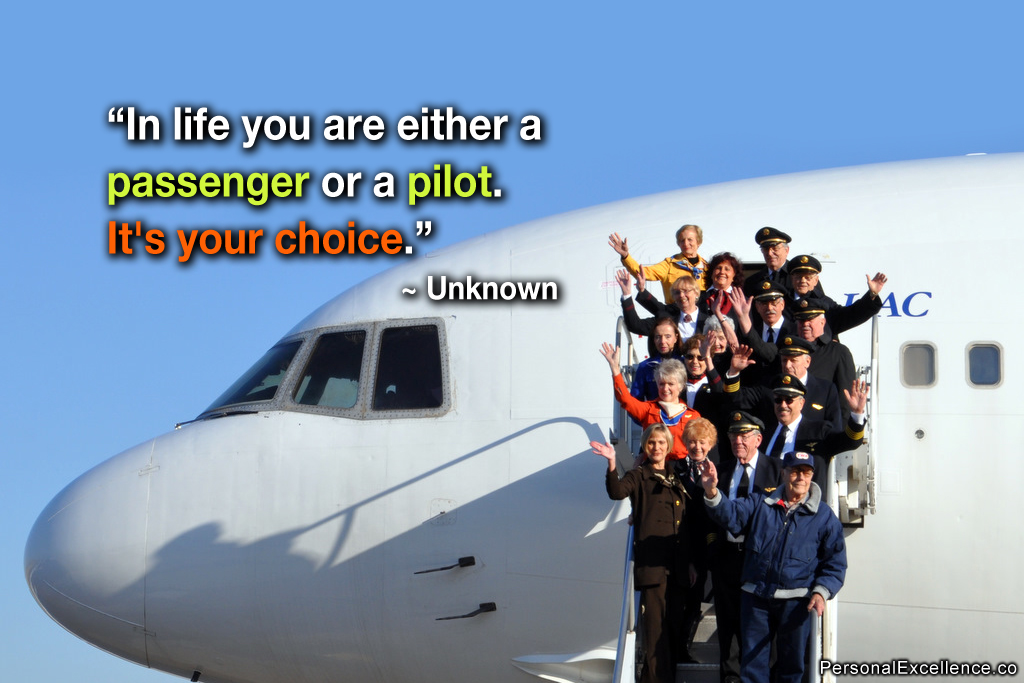
(Image)
This is a follow-up post to the original article Are You Sleepwalking Your Life Away? to clarify on certain key points as well as to reply to the large volume of reader feedback.
Influx of traffic
In all honesty, the response to my original article blew me away. I knew that the content was going strike an emotional chord with readers, but I didn’t think it would go viral.
It started off with a front page listing on Digg.com a week ago, where we received a huge influx of visitors in just two days, which exceeded the visitor target I had for January (and half of February). After that, links just started sprouting everywhere, on forums, blogs, and social bookmarking sites.
After the listing, I stopped promoting the blog just to see how the traffic growth would last. After one week, the momentum is still there — the word is still spreading and there are still new sites linking back to the article on a daily basis. In fact, as I’m typing this, we just hit the front page of Delicious.com! Thank you to everyone who has been supporting this blog and hello to all new visitors!
Writing the sleepwalking article
When I was writing the original article, I was single-mindedly focusing on the goal to wake up sleepwalkers. In fact, I wrote this in the header and referred back to it constantly as I was writing.
In my mind, I was thinking about how to best reach out to sleepwalkers through my writing. I thought about the sleepwalkers in my circle of friends and acquaintances. I thought about all the sleepwalkers I cross paths with every day and who exist in this world. I thought about the huge, unlimited potential in them, waiting to be unleashed. This served as my source of inspiration.
I didn’t want the sleepwalkers to just read the article, go “oh, yeah,” then continue back on with their daily lives. The article has to be more than just an informative piece. It has to jolt them awake. It has to trigger self reflection and make them think about what they really want in their lives. It has to spur them into action.
Yet, I understand that there are limits with what an online article can do. Even if they wake up for just one second and return to sleep, at the very least the seed has been planted.
Huge feedback and response
Based on all your feedback and response, I’m glad to say that the article has achieved its objective. :D Thank you to all of you who sent in your feedback. :) It is extremely energizing reading them and there is something to take away from every feedback.
Out of all the feedback:
- About 70% is positive, with people feeling inspired and acquiring new insights
- 25% felt agitated and attacked. They either do not see a point in waking or tried to justify why they are not awake
- 5% felt depressed and lost, not knowing what to do now they are awake
If your response falls under (2), stop for a second and observe your reaction. Ask yourself this: Why are you feeling this way? What are you trying to defend? What is it about the message that you are uncomfortable with? Your reaction is a reflection of something within you.
Here, I will reply to the top feedback I received about the article.
Q1. I fit the signs of a sleepwalker, but so does 99.99% of the world’s population. Does that mean that all of us are sleepwalkers?
Don’t take the 8 signs of a sleepwalker literally. These are just common traits of a typical sleepwalker and are meant as a general guide. Just because you meet one or more of the signs does not necessarily mean you are a sleepwalker.
For example, an apple is round and red. Does that mean that everything that is round and red is an apple? No — it can be something else, such as a cherry, tomato, or ball of red yarn.
Just because you are someone who has a 9-5 job, plays video games when you are free, and is constantly busy does not mean that you are a sleepwalker. Your job may be a means to an end that you want to achieve. Perhaps you want to pursue your life passion in the long run, and your job is to secure your finances in the meantime. As long as you are conscious of your actions in the larger context of your life purpose, you are not a sleepwalker. This is different from someone who lets their life become ruled by others because they lack awareness of what they want to do.
On the other hand, not fitting the symptoms does not mean that you are not a sleepwalker. You can be a multi-millionaire, running a chain of business, highly successful, and married with two kids. However, if all you have been doing in your life is pursuing false purposes conditioned into you by others, having kids because others tell you to have them, earning money because that’s what you were told is important, then that’s really not much different from being a sleepwalker.
All in all, the determining factor is not how rich, successful, driven, ambitious, productive or smart you are. It is how conscious you are in your life. (Read the next answer on what it means to be “awake.”)
Q2. You often hear people saying that they have “woken up” because they have “outgrown” their previous life phase, started a family, have kids or found their “calling.” Have these people awakened? How do we know for sure when we are truly awake?
Think of the waking process as being made up of different steps. In general, all of us grow in consciousness through life, and as we rise in consciousness, we become more “awake.”
Lower consciousness levels include (but are not limited to) shame, guilt, grief, fear, anger, and pride. Higher consciousness levels include (but are not limited to) courage, acceptance, reason, love, and peace. Every shift in consciousness level represents a gradual awakening. The level that marks the first waking point is when we achieve “Acceptance,” where a major transformation occurs and we start to see ourselves as the source and creator of our life.
While this statement sounds very simple, it has many layers of meaning. It is more than just being proactive about life. It means becoming aware of the social constructs in our life, whether they are family, society, nation, religion, or work. It means having the ability to identify and discern limiting beliefs and viewpoints and see past conditioning. It means consciously crafting our life above and beyond all these social constructs. For example, a person who devotes himself/herself to a religion he/she is born into without consciously discerning, evaluating, and questioning its teachings is as much a sleepwalker as someone who has no direction in life.
Q3. How does consciousness level relate to intelligence?
Consciousness refers to your mental awareness.
Intelligence refers to (1) one’s capacity for learning, reasoning, understanding, and similar forms of mental activity, and (2) aptitude in grasping truths, relationships, facts, meanings, etc. (Dictionary.com). Acquired and general knowledge are also socially accepted forms of intelligence.
Consciousness and Intelligence are not entirely the same. Someone who is very intelligent can be low in consciousness. Take for example, a high flying Wall Street investment banker whose life focus is to surround himself with material possessions so that he can feel worthy and secure (level of fear. Another example is a CEO of a highly successful corporation who has no respect for people below him (level of pride).
They are often closely correlated, however. A highly conscious individual is usually highly intelligent, though the reverse is less common. The reason is because someone who is highly conscious will naturally be passionate about personal growth, which leads to conscious knowledge acquisition and an enhanced capacity for learning.
Q4. I think I am a sleepwalker. I want to wake up. How can I do that?
You just did! The very act of recognizing that you have been sleeping means you have already woken up. It’s the same as when you are dreaming — for you to realize that you have been in a dream, it means you have already woken up (unless you are lucid dreaming). It’s your choice whether to stay awake, or go back to sleep and deny that any of this happened.
Q5. I feel depressed after reading the article. I don’t know what I should do.
When you wake up, there will be a moment of shock and emptiness, since the life as you have known it is no longer the same. What is most important is what you do after this. What you do, from this point onward, is what’s going to change everything.
You are not alone in this. When I first woke up, I felt lost. I didn’t know what to do. I was torn between (1) tearing down the foundation which I had built thus far in life and proceed to pursue my passion, and (2) going back to my life as I knew it and pretend that everything was the okay, except that I knew it really wasn’t. In the end I decided to embrace the truth and pursue my passion, and that marked the moment where my life had a much higher meaning.
Everyone is born a sleepwalker. Everyone faces a point when they wake up and realize they need to take ownership over their lives to truly live. This does not mean that your life before this point has gone to waste. Whatever happened up to this point happened for a reason. It has been critical in allowing you to learn, grow, and become the person you are today.
The sleepwalker article is meant to make you realize the infinite power you have in you to create the life you want. You are the single most powerful creator of your life. The key now is to bring that out of you and make things happen.
Q6. Why label others and discriminate against how people live their lives?
I use the word ‘sleepwalker’ not as a label, but merely a term to describe people who are living their lives unconsciously. It’s just a word, a descriptor. Don’t get too caught up in the term. Rather, focus on the underlying meaning of the word. If you dislike the word “sleepwalker,” use any substitute word to replace it.
It’s illogical to think of a sleepwalker or someone who is awake as more ‘superior’. To me, duality is an illusion. We are all interconnected as one and we are all parts of a bigger whole. The original article is not intended to negate sleepwalkers or their lives. At the end of the day, everyone has freewill and is entitled to do and lead their life the way they want, sleepwalkers or not. The original article is meant to drive awareness surrounding unconscious living, trigger self-reflection, and make us take ownership of our lives. My objective here is to help set everyone on the conscious path towards personal growth and elevate them to their highest potential.
Q7. I am 40, married, with 2 kids, and I have bills, mortgage and car loans to pay. I have responsibilities which I need to live up to. It’s not as easy to just go “pursue my purpose.”
I hear you and I empathize with you. While I may have more liberty given my current life stage where I’m not married or tied down with a family, I do have responsibilities I need to deal with too, such as being financially secure and supporting my parents. These are responsibilities which I manage in line with the pursuit of my purpose.
Nobody is expecting you to move immediately to fully pursue your passion, unless you want to. The transition to your purpose is not supposed to be instantaneous.
Just because you have obligations does not mean that you cannot pursue what you want to do. You just need to identify the best way to pursue your passion, in a manner that allows you to manage your responsibilities too. It’s never between fulfilling your obligations and pursuing your passion — it’s about doing both. You are not the only person in this world who has responsibilities. You just need to create a vision which fulfills all your needs.
When you have finished crafting your end goal, build your plan to transit towards it.
Q8. What does it mean to be awake?
Being awake does not mean that we stop taking pleasures in life, stop playing games, or stop having recreational fun. It doesn’t mean that you become a hermit and meditate 18 hours every day (though you can if you want to).
What’s different now is there is a common direction that binds everything in your life together. It means that everything you do from here on starts having a deeper meaning and focus, rather than because you are bored and have nothing else to fill in the gap of time. In the midst of pursuing your purpose, the little pleasures you love will continue to be a part of your life all the same: such as hanging out with friends, spending time with your kids, walking your dog, watering your garden, etc.
Q9. How would I know my life will be better after waking up? I’m doing okay with my life right now.
It will be, because being able to live in line with your truest passions is the single most powerful thing you can ever do in the world. I have experienced life both as a sleepwalker and as someone who is awake. I’m telling you from personal testimony that pursuing my real purpose is the best thing I have ever done in my life. The past 2 years have been the best years of my physical existence thus far and I have no doubt that every year ahead is going to better than the one before. :)
I can sit here all day and preach to you till the cows come home, and it really doesn’t matter. At the end of the day, your life is yours to lead and you are free to choose whatever you want. There’s no way you will know until you try it for yourself. Just go lead a fully conscious life, driven by a purpose, for 6 months and see where that takes you. If you find that there’s no difference or your previous life is better, then you are free to switch back to your sleepwalker status and continue a life where you fulfill others’ purposes.
Q10. So what should I do now that I’m awake?
- Start off with my How To Find Your Life Purpose (7-part series) to find your purpose. There are lots of information in it which will help you discover your true life’s purpose, including important factors to consider when defining your purpose, an exercise to find your purpose, and how to integrate your purpose into your current life after discovering it.
- With your life purpose identified, design your overall life vision that meets all your life’s needs.
- After your end goal is crafted, read my posts on Goal Setting and Achievement on strategies to achieve your goals.
Q11. What paths can we move to after we awaken? Are there any paths other than self-help?
Yes of course! While some people may end up with a purpose that is some variation of personal development and helping others, the mediums to achieve this goal is unlimited. It’s not just speaking, book writing, and coaching, but so much more than that.
Look around you: it’s everywhere. Singers inspiring the world with their songs and voices. Teachers touching the lives of students. Doctors healing and saving the lives of many. Politicians who rally to build a better nation. Businessmen who set up social enterprises because of their passion in social corporate responsibility. Healthcare workers who save lives on a daily basis. The paths are only as limited as you let them be.
This is part of the Conscious Living series.







 If you like my articles, join my community of 65,000 readers and get my latest articles delivered to your inbox. Your email is safe. 100% no spam.
If you like my articles, join my community of 65,000 readers and get my latest articles delivered to your inbox. Your email is safe. 100% no spam.
Hi Celes. I’ve only just gotten round to reading Part 2 of “Are you sleepingwalking your life away”. I believe the piece echoed it’s message beautifully without judgement in Part 1. Your feedback in this part expounded on your original intent for indepth clarification. Overall, another beautiful evaluation of inspiring others to live purposeful life’s through practising highly conscious living. Oceans of positive love from the Universe and me.
Hi Celes, I’ve only gotten round to reading Part 2…..”Are you sl
This is an excellent follow-up to the sleepwalker article! I personally didn’t have many questions or issues with the original article but having been on the other side of the sleepwalker coin, I can easily understand how many readers might’ve become confused or gotten the wrong ideas from reading it. What a high quality response!
To those of you who made comments on the original article, YOU have already helped to contribute to improving other’s lives by virtue of asking the questions that others might not have bothered to ask due to fear, time constraints, or embarrassment or whatever. So thank you to those of you who shared your feedback as well. :)
Commenting for this post is closed.